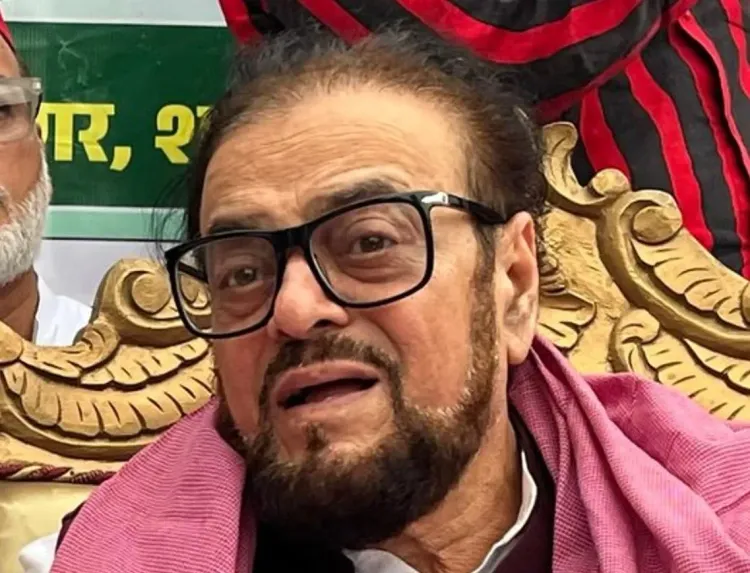Did Atal Bihari Vajpayee Advocate for Palestinian Freedom? SP's Abu Azmi Condemns India's UN Abstention on Gaza Vote

Synopsis
Key Takeaways
- India abstained from a UN resolution calling for a ceasefire in Gaza.
- Abu Asim Azmi criticized the decision as a betrayal of India’s foreign policy.
- Historical leaders like Atal Bihari Vajpayee advocated for Palestinian freedom.
- The abstention reflects India's strategic ties with Israel.
- This marks a significant policy shift in India’s approach to the Palestinian issue.
New Delhi, June 15 (NationPress) Samajwadi Party's Maharashtra state President Abu Asim Azmi has vehemently condemned India’s recent abstention from a resolution proposed in the United Nations General Assembly that urged for an immediate ceasefire in Gaza.
He characterized this decision as a betrayal of India's enduring foreign policy and moral duty, highlighting a consistent historical support for the Palestinian cause among Indian leaders.
“Our leader (and former Prime Minister) Atal Bihari Vajpayee had stated that Palestine should be liberated and Israel must vacate Palestinian land without delay,” Azmi remarked. He also referenced former Prime Ministers like Jawaharlal Nehru and Indira Gandhi, who stood resolutely with Palestine and condemned Israeli aggression. “The atrocities faced by the Palestinian people are unacceptable and deserve condemnation,” he added.
Azmi further criticized Prime Minister Narendra Modi for India's abstention during the vote, questioning, “If 149 nations could unite on this resolution, why did our Prime Minister opt out? This is a grave error. I believe the citizens of India will not forget such intentional actions. This contradicts our nation’s historical foreign policy,” he asserted.
India’s abstention on June 12 represents the fourth occasion in three years where it has refrained from voting on UN resolutions critical of Israel’s military actions in Gaza and other occupied regions. The latest resolution, overwhelmingly endorsed by the General Assembly, called for an immediate ceasefire in Gaza, where over 55,000 Palestinians, including numerous women and children, have lost their lives due to escalating Israeli airstrikes.
While the Ministry of External Affairs has not provided an official rationale for India’s abstention, foreign policy experts believe this reflects a strategic shift as India enhances its military and economic relations with Israel, even at the expense of its traditional pro-Palestine stance.
In December 2024, India supported a similar ceasefire resolution, making the June 2025 abstention a noteworthy change in policy. This decision arrives amid increasing global outrage over the humanitarian crisis in Gaza and widespread demands for accountability.





